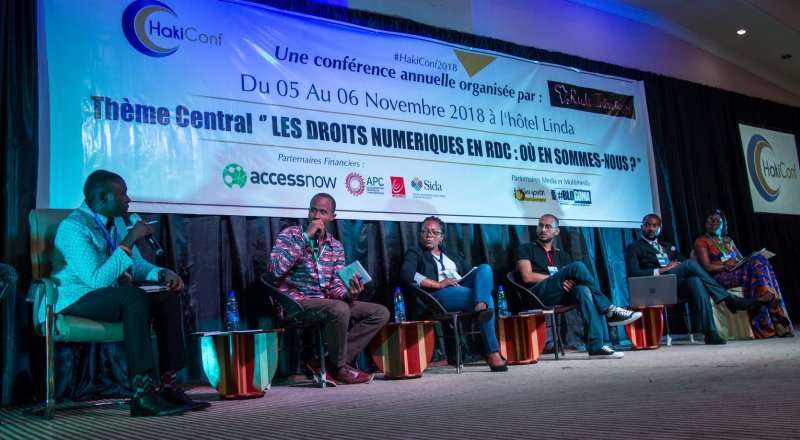Statement |
Civil society representatives, lawyers, and journalists from East and Central Africa have called upon their governments to develop policies that protect citizens’ digital rights and promote the use of the internet for free expression and for pursuing economic and education opportunities. The call was made amidst growing concerns that an increasing number of African countries are taking measures that restrict rather than promote the use of the internet. These measures include introduction of taxes that hinder access and use of Information and Communications Technology (ICT) and laws that hamper freedom of expression through ICT.
The call was made following a workshop on ICT Policy and Advocacy for actors from East and Central Africa, which took place in Goma, Democratic Republic of Congo. Hosted by the Collaboration on International ICT Policy for East and Southern Africa (CIPESA) and Rudi International on November 4–6, 2018, alongside the Haki Conference, the workshop drew 29 participants from Burundi, Kenya, DR Congo, Rwanda and Uganda.
Participants noted that the region faces similar challenges such as a lack of data protection laws, mass data collection efforts by governments and business entities, rising self-censorship by individuals and groups who fear reprisals for their online activities, gender-based cyber violence, and high perceptions of undue government surveillance on citizens’ communications. Moreover, some countries in the region have registered blockage of critical websites at the instigation of state authorities, while intimidation and harassment of independent bloggers and activists remain rampant, which affects freedom of expression and the free flow of information online.
In particular, participants urged the Rwanda government to amend its law on interception of communications to strictly define officers who can apply for warrants for monitoring of communications, to strengthen judicial oversight over interceptions activity, and to strictly guard the possibility for mass electronic surveillance.
Burundi was urged to enact a strong access to information law that requires state agencies to pro-actively release information, protects whistleblowers, and effectively advances citizens’ access to information online and offline.
Meanwhile, Burundi, DR Congo, Rwanda and Uganda, were urged to speed up the enactment of comprehensive privacy and data protection laws that strongly protect the integrity of users’ data and severely punish those who misuse such data. None of the countries in the region has a data protection law, although all require mandatory registration of SIM cards and are undertaking various exercises to collect massive amounts of citizens’ data.
In DR Congo, the lack of up-to-date laws to govern the telecommunications sector was noted with concern. Participants called on the National Assembly to expedite the enactment of the bill to update the outdated 2002 law on telecommunications, which is currently before the legislature. However, the parliament should widely consult civil society and the private sector and meaningfully integrate their inputs into the law to be adopted. Moreover, the DR Congo government should enact other ICT-related laws, such as on cyber crime and data protection; and take decisive measures to increase access to affordable fibre around the country, particularly in rural and under-served areas, and meaningfully invest Universal Service Funds in improving broadband access.
The region has this year seen the introduction of online content regulations that undermine the use of ICT. Tanzania and Uganda have started licensing online content producers at a fee, while in July, Uganda set a precedent by introducing taxes to access social media sites including Facebook, Whatsapp and Twitter. The DR Congo, which has ordered various internet disruptions in the last two years, also issued regulations in 2018 that require online publishers to register. .
Indeed, in the wake of these developments, participants called on states to develop laws that robustly stimulate the affordability and usage of the internet and related technologies as opposed to curtailing access to digital communications and stifling freed expression and access to information. The participants also shared their views at DR Congo’s first digital rights conference that concluded with the issuance of the Goma Declaration (French). The training in DR Congo was part of the CIPESA-run OpenNet Africa project (www.opennetafrica.org) which is working to grow the network of individuals and groups that work on advancing internet freedom and building their capacity to engage in digital rights advocacy.

